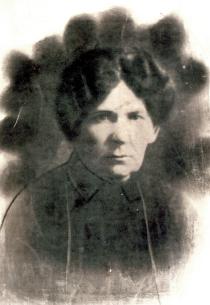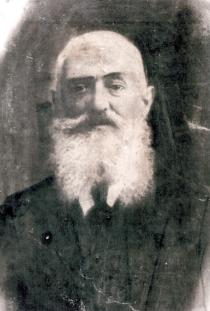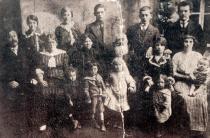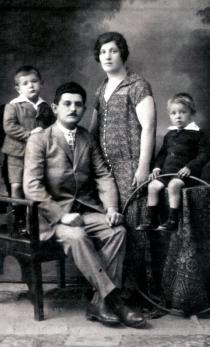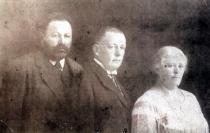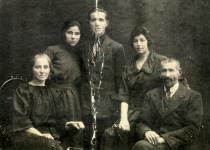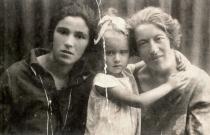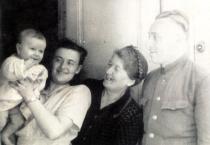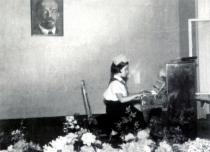My grandmother Inda Grinberg, my mother's mother in 1912 in Mohilev-Podolsk.
My mother's family lived in Mohilev-Podolsk. It was a fairly big town at that time. There were brick and stone buildings, stores, a theater and a restaurant. More than 50,000 people lived in the town. There was a big market. Vendors from all the surrounding villages were selling their food products and crops there. There were many Jews in Mohilev-Podolsk. Jews constituted approximately half of the population. Basically, the inhabitants of Mohilev-Podolsk were craftsmen and farmers. All tailors and shoemakers in Mohilev-Podolsk were Jews. Jews also kept small stores selling food products, clothing, shoes, and so on. They lived in peace with the Moldavians and Ukrainians. There were no nationality conflicts. There was also a Christian Orthodox church. People in Mohilev-Podolsk respected the traditions of each other.
My grandparents were religious people. They wore traditional Jewish clothes. My grandfather wore a long black jacket and a black hat. My grandmother always wore long black gowns and a wig. I don't know what my grandfather did for a living. My grandmother was a housewife. They had six children: Sima was born in 1890, Israel in 1892, Velvl in 1894, Reizl in 1896, my mother, Hana, in 1898, and Ilia in 1900.
My grandparents celebrated Sabbath and Jewish holidays and went to the synagogue every week. The boys studied at cheder and the girls were educated at home. They spoke Yiddish in the family, but all children also spoke fluent Russian. Mohilev-Podolsk was a pretty big town, and my mother and her sisters and brothers socialized with many young people. Of all my mother's sisters and brothers only her older sister, Sima, grew up to be religious.

